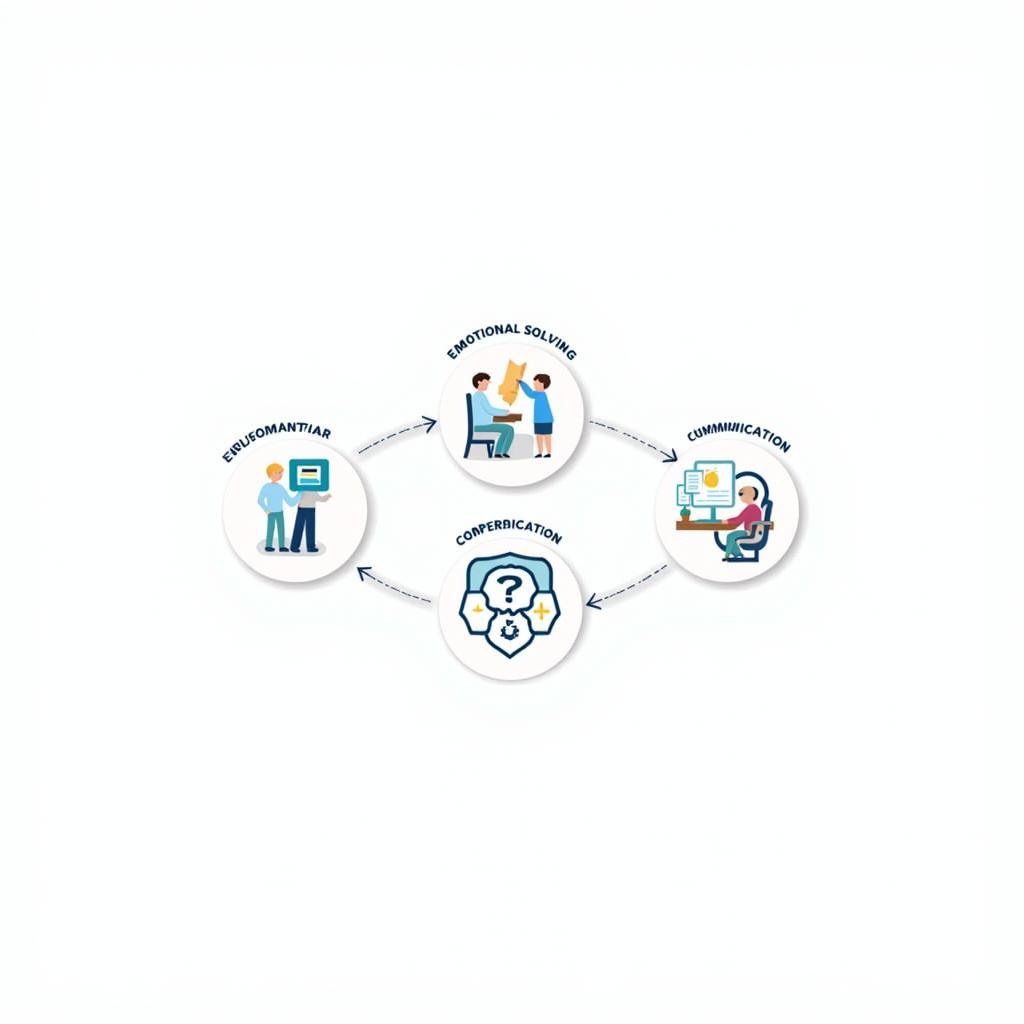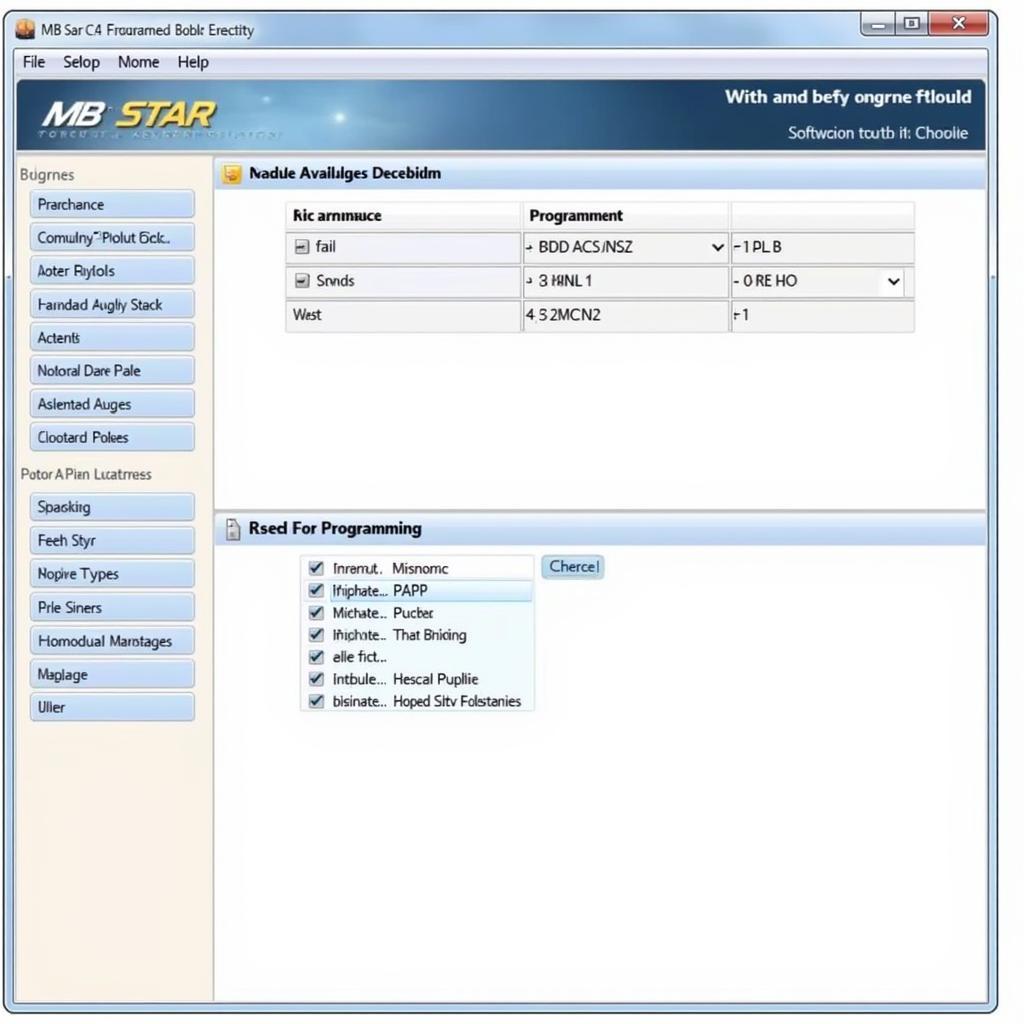Emotional intelligence (EQ) is a critical skill that significantly impacts various aspects of our lives, from personal relationships to workplace success. It’s the ability to understand and manage our own emotions and the emotions of others. Knowing where you stand in terms of EQ can be incredibly valuable for personal and professional growth. This is where Emotional Intelligence Diagnostic Tools come into play.
These tools are designed to assess and provide insights into different aspects of your emotional intelligence. They can reveal your strengths and weaknesses, helping you identify areas for improvement and develop strategies to enhance your EQ. But with so many tools available, choosing the right one can feel overwhelming.
This comprehensive guide will delve into the world of emotional intelligence diagnostic tools, exploring their types, benefits, and how to choose the best one for your needs.
What are Emotional Intelligence Diagnostic Tools?
Emotional intelligence diagnostic tools, often referred to as EQ tests or assessments, are instruments designed to measure various aspects of an individual’s emotional intelligence. They typically involve a series of questions or scenarios that assess your ability to:
- Recognize and understand your own emotions.
- Manage and regulate your emotions effectively.
- Recognize and understand the emotions of others.
- Respond appropriately to the emotions of others.
- Build strong and healthy relationships.
- Communicate effectively.
- Navigate social situations with ease.
- Overcome challenges and setbacks.
These tools can be administered in various formats, including:
- Self-report questionnaires: These are the most common type of EQ assessment. They typically involve a series of statements or questions that you respond to based on your own perceptions and experiences.
- Situational judgment tests: These assessments present you with realistic scenarios and ask you to choose the most appropriate course of action.
- Observer ratings: In some cases, assessments might involve gathering feedback from people who know you well, such as colleagues, friends, or family members.
Why is Understanding Your Emotional Intelligence Important?
 Benefits of High Emotional Intelligence
Benefits of High Emotional Intelligence
Emotional intelligence is a key predictor of success in many areas of life. Individuals with high EQ tend to:
- Have stronger and more fulfilling relationships: They are better at understanding and responding to the needs of others.
- Excel in leadership roles: They are adept at motivating and inspiring others.
- Navigate conflict effectively: They can de-escalate tense situations and find common ground.
- Perform better under pressure: They can manage their stress levels and make sound decisions.
- Enjoy greater well-being: They report higher levels of happiness, life satisfaction, and resilience.
How Can Emotional Intelligence Diagnostic Tools Help You?
By providing a clear picture of your EQ strengths and weaknesses, these tools can empower you to:
- Identify areas for personal and professional growth: You can pinpoint specific emotional intelligence skills to focus on improving.
- Develop targeted strategies for improvement: Once you know your weaknesses, you can find resources and techniques to enhance your EQ in those areas.
- Boost self-awareness: Understanding your emotional patterns and tendencies can lead to greater self-acceptance and personal growth.
- Improve communication and relationships: By developing your ability to understand and respond to the emotions of others, you can build stronger and more meaningful connections.
Types of Emotional Intelligence Diagnostic Tools
There are numerous emotional intelligence diagnostic tools available, each with its own strengths and limitations. Some popular options include:
- Mayer-Salovey-Caruso Emotional Intelligence Test (MSCEIT): This test measures the four branches of emotional intelligence, including perceiving, using, understanding, and managing emotions.
- Emotional and Social Competency Inventory (ESCI): The ESCI is a well-regarded assessment that measures a broad range of emotional and social competencies.
- Emotional Quotient Inventory (EQ-i 2.0): This widely-used assessment focuses on 15 different emotional and social skills that contribute to overall well-being and success.
- Bar-On Emotional Quotient Inventory (EQ-i): This model of emotional intelligence emphasizes the role of emotions in adapting to and coping with environmental demands.
Choosing the Right Emotional Intelligence Diagnostic Tool
Selecting the most suitable emotional intelligence diagnostic tool depends on your specific needs and goals. Consider the following factors when making your choice:
- Purpose of the assessment: Are you seeking self-improvement, leadership development, or team building?
- Target audience: Is the assessment designed for individuals, leaders, or teams?
- Reliability and validity: Choose a tool that has been scientifically validated and proven to be reliable.
- Cost and accessibility: Some assessments are free, while others require payment.
- Format and delivery method: Consider whether you prefer a self-administered online assessment, a group workshop, or individual coaching.
Making the Most of Your Emotional Intelligence Assessment
Taking an emotional intelligence diagnostic tool is just the first step. To truly benefit from the assessment, you need to:
- Approach it with an open mind: Be honest with yourself in your responses.
- View your results as a starting point: Your scores are not a judgment of your worth but rather a roadmap for growth.
- Focus on your areas for development: Identify specific skills or competencies you want to improve.
- Create an action plan: Set realistic goals and develop strategies to enhance your emotional intelligence.
Conclusion
Emotional intelligence diagnostic tools can provide valuable insights into your emotional strengths and weaknesses, empowering you to make positive changes in your life. By understanding your EQ, you can improve your relationships, enhance your performance, and live a more fulfilling life. If you’re ready to embark on a journey of self-discovery and growth, consider taking an emotional intelligence assessment.
For more information on psychological and diagnostic tools, you can explore our resources on psychological tests diagnostic tools and psychology diagnostic tools.
Contact ScanToolUS at +1 (641) 206-8880 or visit our office at 1615 S Laramie Ave, Cicero, IL 60804, USA for personalized guidance on choosing the right tools for your needs.

